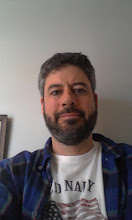lunes, 18 de enero de 2010
Echando una mano a los haitianos.
Por desgracia, la educación suele reducirse demasiado a menudo a lo meramente académico. Se interpreta como la transmisión de conocimientos relativos a una serie de disciplinas que nuestras sociedades consideran vitales para desempeñarse en ellas como adultos, y poco más. Sin embargo, la educación integral (esto es, la educación auténtica) no tiene más remedio que incluir la transmisión de valores éticos. Por eso, aprovechando (no se me ocurría otro término) los desgraciados incidentes recientemente acaecidos en Haití, Leslie y yo pensamos que era el momento oportuno de introducir a los niños a la idea de contribuir a una causa justa y echar una mano a los más necesitados. Así pues, les hablamos un poco sobre la situación política, económica y social del país, dónde se encuentra geográficamente, y les mostramos unas imágenes publicadas por la revista Time sobre el terremoto que ha asolado la capital antes de conectarnos al web de la Cruz Roja española para hacer una modesta contribución económica.
Etiquetas:
Ciencias Sociales,
Ética,
solidaridad
domingo, 3 de enero de 2010
A History of Hacking.
There is no doubt that technology dominates and defines today's society. Yet, concepts like that of hacking are quite misunderstood. While at the beginning of the digital era, hacking was considered to be any sort of experimentation that one might do with new devices (especially, if one were to use them for a purpose they had not been originally designed for), it quickly became a synonym for a computer criminal in the 1990s. Computer hobbyists prefer to use the term cracker or black-hat computer hacker for the latter, but the word never truly made it to the mainstream media. As a consequence, most people out there identify hacking with illegal activities.
So, what I was trying to teach my kids with this vitamin is that hacking (in the original sense of the term) could actually be something creative and productive. That most scientists and inventors that have been were actually hackers in this sense. In other words, I tried to promote hacking as conceived by Paul Graham in his book Hackers and Painters: an activity that promotes curiosity, experimentation and creativity, associating disparate ideas and solving puzzles and problems. That is the time honored tradition of hacking, as described also in Steve Levy's classic book, Hackers: Heroes of the Computer Revolution.
In order to explain all this, we watched a documentary by Discovery Channel, which tells the story of three well-known hackers: John Draper (a.k.a. Captain Crunch), Steve Wozniak and Kevin Mitnick.
So, what I was trying to teach my kids with this vitamin is that hacking (in the original sense of the term) could actually be something creative and productive. That most scientists and inventors that have been were actually hackers in this sense. In other words, I tried to promote hacking as conceived by Paul Graham in his book Hackers and Painters: an activity that promotes curiosity, experimentation and creativity, associating disparate ideas and solving puzzles and problems. That is the time honored tradition of hacking, as described also in Steve Levy's classic book, Hackers: Heroes of the Computer Revolution.
In order to explain all this, we watched a documentary by Discovery Channel, which tells the story of three well-known hackers: John Draper (a.k.a. Captain Crunch), Steve Wozniak and Kevin Mitnick.
Etiquetas:
computers,
hacking,
technology,
Tecnología
Suscribirse a:
Comentarios (Atom)
